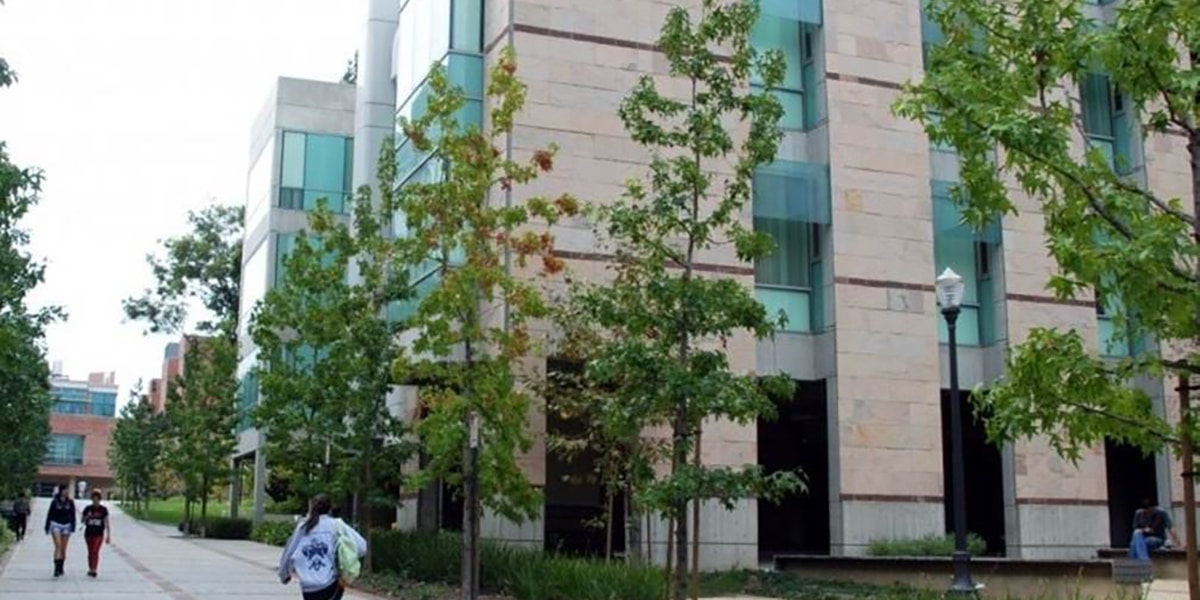Microbiology is the study of living organisms that cannot be seen with the naked eye. These tiny organisms include microbes such as algae, bacteria, protozoa, archaea, prions, viruses, and fungi. Study of microbes can lead to life-saving drugs, producing and processing food and beverages, manufacturing biofuels, and even cleaning up pollution. There are many programs that offer a Masters in Microbiology. It will take some thought and research to find the best biology program for you.
Table of contents
How do Masters in Microbiology Programs Differ?
Each Microbiology program is a little different. Faculty at particular institutions have different areas of expertise. Some programs are tied with immunology and focus on microbiology in terms of medicine and healthcare. Others focus more on biology and biological engineering. A student’s particular interests and desired educational and career path will help to narrow down potential programs.
Which School Offers the Best Masters in Microbiology Program?
Here are the top 15 Masters in Microbiology Programs in 2021
| Rank | School | Location |
|---|---|---|
| 1 | University of Texas | Austin, Texas |
| 2 | University of Michigan | Ann Arbor, Michigan |
| 3 | University of Georgia – Athens, GA | Athens, Georgia |
| 4 | University of California | Los Angeles, California |
| 5 | University of Virginia | Charlottesville, Virginia |
We have put together a list of schools that offer a Masters in Microbiology. We ranked the top 15 schools. We used tuition (lowest is best) and enrollment (highest is best) to rank the schools. Explore our rankings of the schools that offer the best Masters in Microbiology Programs below.
University of Texas
The University of Texas at Austin offers graduate studies in Microbiology as a part of the Institute for Cellular and Molecular Biology through the College of Natural Sciences. This program allows students to specialize in their area of interest. Possibilities include fungal biology, microbial genetics and evolution, microbial pathogenesis, cell biology and immunology, virology, and bacteriology. Understanding microbes is essential to face the unique challenges of present day society.
University of Michigan
An M.S. in microbiology and Immunology through the University of Michigan Medical School can include a research option or a non-research option. Some students may be preparing for careers in research, while others may go in different directions. The program can be customized to the interests of the student, whether career aspirations include a Ph.D. or not. All master’s program students receive instruction in host and pathogen, immunology, and graduate-level microbiology coursework.
University of Georgia – Athens, GA
Programs in the Microbiology Department at the University of Georgia can lead to an M.S. or Ph.D. degree. The department is a part of the Franklin College of Arts and Sciences. Students who enroll in the program are allowed to explore their interests through a variety of departments and disciplines. Experimental approaches are used as students study microorganisms and their role in human health, industry, and the environment.
University of California

A M.S. is available from the David Geffen School of Medicine at UCLA in Microbiology, Immunology, and Molecular Genetics. Students who enroll in this program have the opportunity to work with the faculty to make original contributions to research in their area of interest. Students go on to careers in industrial settings, molecular genetics, immunology, and microbiology. The faculty is highly regarded in the field and strives for solid research and classroom education for all students.
University of Virginia
The Department of Microbiology, Immunology, and Cancer Biology is the largest in the University of Virginia School of Medicine. The faculty, students, and post-doctoral fellows conduct exciting research in basic biology and human disease. The faculty encourages investigations that spans across several disciplines Requirements for admission are rigorous, looking at both grade point average as well as a passion for research and career aspirations.
Cornell University
Under the College of Agriculture and Life Sciences, the Microbiology Program at Cornell University has a strong emphasis on prokaryote biology. This is one of the few graduate programs in the country that has this emphasis on the fundamental properties of Bacteria and Archaea. Students do three rotations in their first year, which are chosen from over 40 different laboratories. After this, students can choose a path to guide their studies and also choose two minor areas of concentration.
University of Southern California
The Program of Molecular Microbiology and Immunology is part of the Keck School of Medicine of the University of Southern California. An M.S. in Molecular Microbiology and Immunology from USC will prepare students for a career in the biomedical sciences. Many students go on to work in the fields of cancer research, immunology, virology, and microbiology. Jobs can be found in research, teaching, industry, law firms, environmental organizations, government, and publishing. A student’s aspirations can help guide their program.
Georgetown University
Take advantage of a personalized approach at Georgetown University Medical Center. With close proximity to the National Institutes of Health and other organizations in our nation’s capital, this is an ideal location to seek an M.S. in Microbiology and Immunology. Students can gain insight into our country’s response to infectious diseases. There are many courses to choose from as well as laboratory experiences to enhance learning. This program prepares students for a career in research, teaching, or in industry settings.
Wake Forest University
The Wake Forest School of Medicine offers a graduate program through the Department of Microbiology and Immunology. This program includes a highly regarded research program in host-pathogen interaction and immune regulation. This means that there are programs that focus on the immune response and there are many projects that focus on the development of improved vaccines. Cancer research is also a big part of the program at Wake Forest.
Stanford University
The Stanford University School of Medicine offers a huge number of bioscience labs in which to explore Microbiology and Immunology. There are 14 “home programs” under the Biosciences umbrella. Students can apply for up to three programs and then enter in through one. From this program, students can explore different research rotations that last for three months each. This program, like many others, is designed as a bridge to a Ph.D.
University of Chicago
The Department of Microbiology is housed at the Cummings Life Science Center at the University of Chicago. Graduate students are allowed to form a plan that will fulfill all program requirements and also cater to the interests of the student. Laboratory research will begin winter or spring of the first year. The faculty is heavily involved in the research of different microbes, including bacteria and viruses. The faculty collaborates with others from the Duchossois Family Institute and the Pritzker school of Molecular Engineering for their investigations.
Tufts University
The Graduate School of Biomedical Sciences offers a comprehensive Molecular Microbiology Program at Tufts University. Students draw experiences from many different departments at Tufts. These include molecular biology and microbiology, biochemistry, pathology, and medicine. Through these areas, students explore the effects of microbes on humans and animals. Students complete four laboratory rotations their first year so that they can try out different research projects, mentors, and groups. This allows students to hone in on their interests.
Washington University
The Division of Biology and Biomedical Sciences at Washington University School of Medicine offers a Molecular Microbiology and Microbial Pathogenesis Program. Students can participate in two major areas of research, which include molecular microbiology and microbial pathogenesis and host defense. Each student can tailor a program to meet their needs and interests to support their career aspirations. Students learn through coursework, laboratory research, seminars, and journal clubs.
California Institute of Technology
The Microbiology program at the California Institute of Technology is offered through the Division of Biology and Biological Engineering. In this program, students will learn from a variety of 15 staff members from four different divisions of science. This gives students the chance to learn about microbial systems not only at the molecular level, but also at the global level. It also allows them to understand these systems in the past, present, and future, and involves study of ecology, chemistry, molecular and cellular biology, physiology, and quantitative reasoning.
Dartmouth College
Dartmouth College offers a Masters in Microbiology and Immunology at the Geisel School of Medicine. This program receives 250 applications every year and enrolls 25 to 30 students each September. Only students who plan to work toward a Ph.D degree full time can be accepted into this program. Students who complete the program go on to careers in biotechnology, teaching, and research. Course requirements are interdisciplinary. This program is so competitive because graduate students are given a full-tuition scholarship, health insurance, and an annual stipend.
Still looking for more options or not sure which of these programs is right for you? Use our degree finder tool to help you find the best school for your interests and aspirations.
Our Ranking Methodology
We gathered tuition rates from the website of each school and enrollment data from the National Center for Educational Statistics. We used in-state tuition rates where available for ranking. We listed all tuition rates by year, multiplying rates when needed if tuition was listed by semester or quarter.
We first sorted by tuition (lowest is best) and then by enrollment (highest is best). We assigned points to each school in each category. We added these numbers together to come to a final score for ranking.
Error With Your Ranking?
If you are employed with one of the schools we ranked and you notice a problem with the information we used for your ranking, please reach out to us and let us know so that we can fix the problem.


